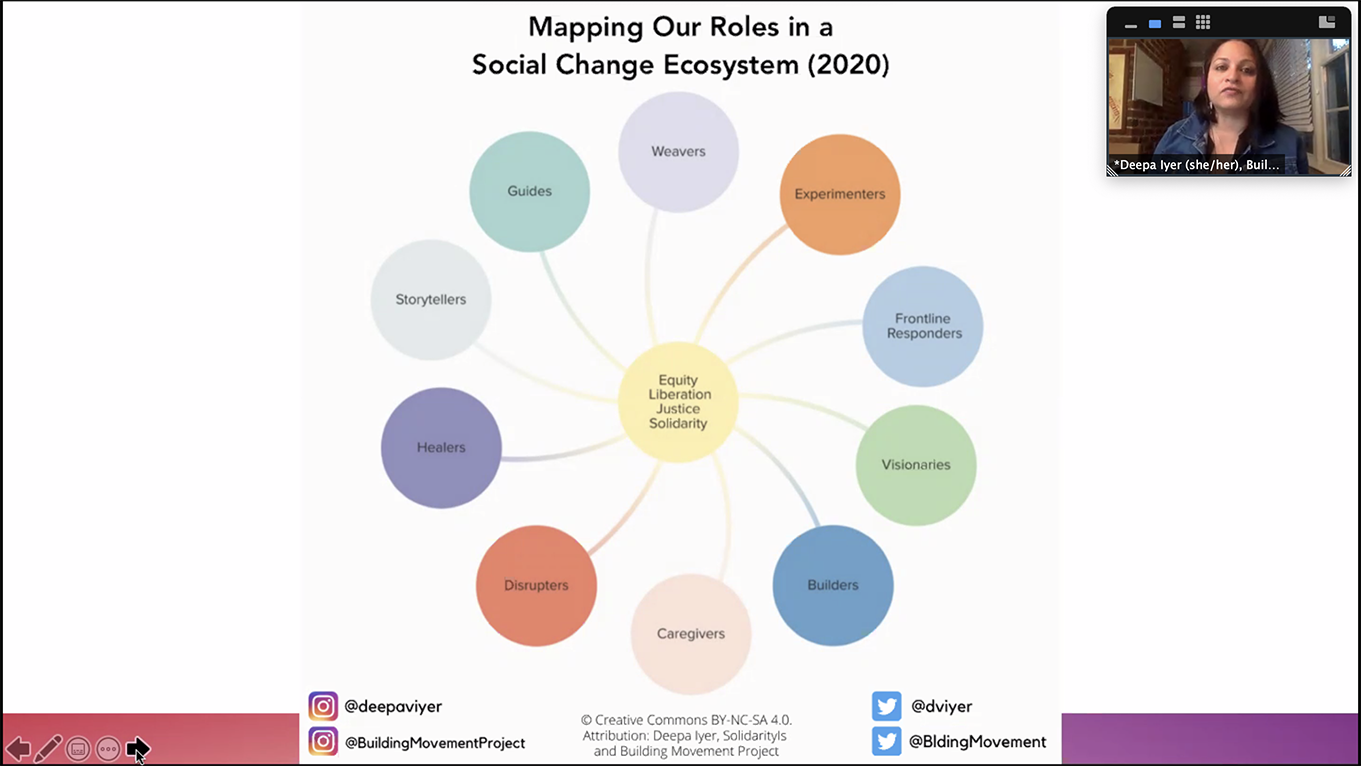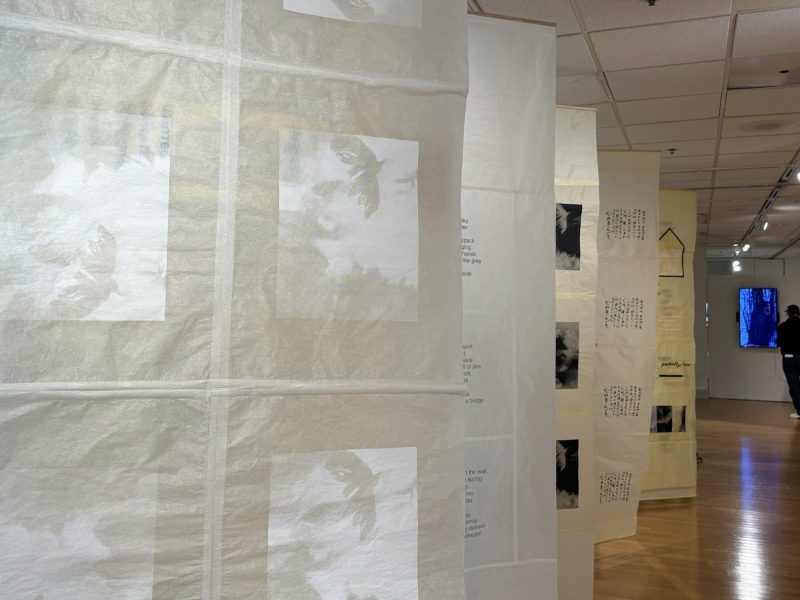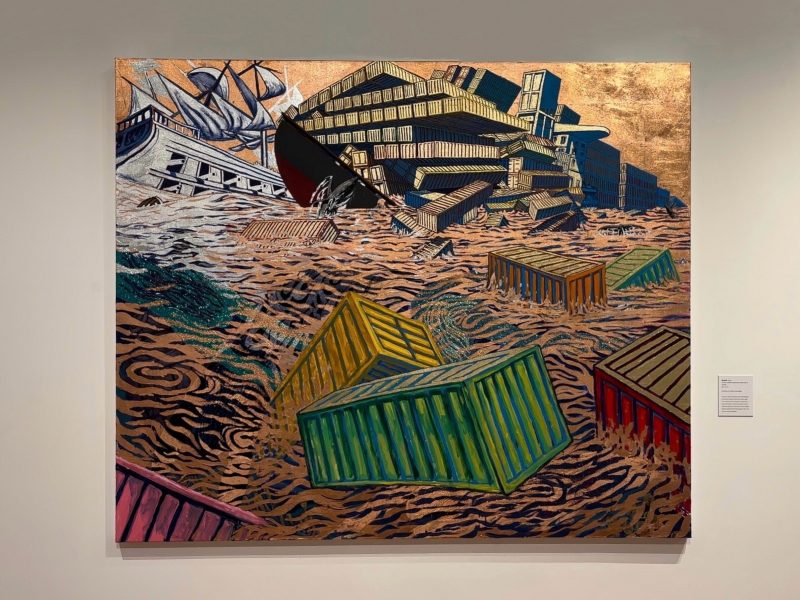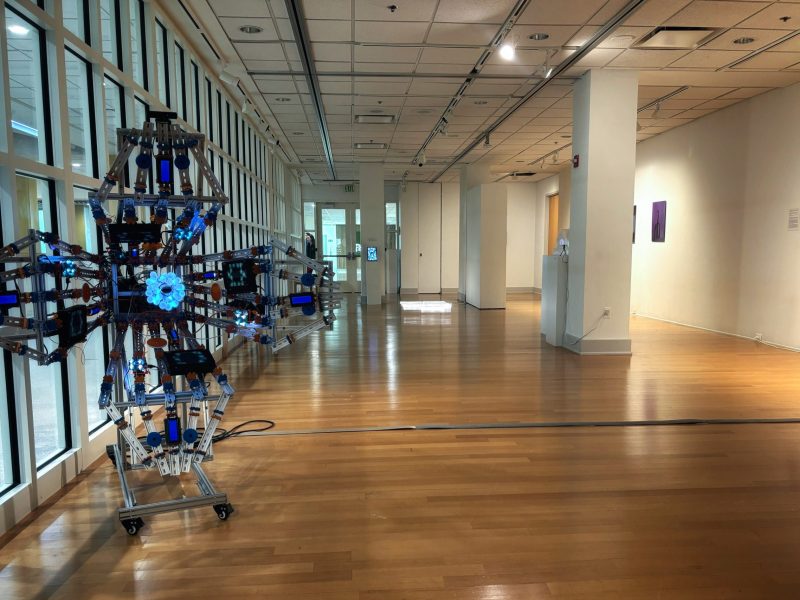By Aadit Tambe
For The Diamondback
This summer, America witnessed a historic period of activism, calling for an end to racial injustice, particularly in Black and brown communities. At the same time, due to the coronavirus pandemic, many people turned to art as a way to express themselves and their emotions.
On Monday, a virtual workshop titled “Art for Social Change: Channeling Your Creativity,” organized by the Multicultural Involvement Community Advocacy office at the University of Maryland, encouraged attendees to mix the two concepts: channeling their creativity in order to create social change.
The virtual event included guest speaker Deepa Iyer, a racial justice advocate.
“I think that it’s very difficult to talk about issues around social change,” Iyer said during the workshop. “These are unprecedented times and we’re all sort of living through them, and they’re taking a toll on us in many ways.”
[UMD students trek to Women’s March in D.C.]
Through her work, Iyer aims to help individuals realize the role they play in creating social change and in the broader social ecosystem. And through the workshop, attendees were encouraged to contextualize these roles within the arts sphere at this university.
According to Marjorie Antonio, a junior American studies and history major and co-organizer of the workshop, the goal of the event was to connect people with like-minded individuals in creative fields. This would allow them to form networks to create social change through art.
During quarantine, Antonio said, many people rediscovered creative outlets as a means of self-expression, using artistic efforts such as TikTok and arts and crafts.
“It’s really been lovely to see [people] providing another level of intentional art and really networking and collaborating with other folks to create projects,” Antonio said.
[MICA hosts “Queer Open Mic Night” to celebrate National Coming Out Day]
But the pandemic has also revealed structural inequities that have long existed in communities in America, Iyer said, so students must use their artwork — and their voices — to work toward justice.
“More people are finding it impossible to dismiss or deny the reality that anti-Black racism exists,” Iyer said. “But for everyone, there seems to be an urgency to act, there seems to be an urgency to do something right, to do good.”
During the workshop, attendees were asked to assess their own roles in society and were connected with individuals who identified with different roles.
After interacting with students, Ghonva Ghauri, the coordinator for Multiracial and Native American Indian/Indigenous Student Involvement and Advocacy at MICA and co-organizer of the workshop, said she thought students saw potential to create social change in the art sphere at this university, but many lack connections.
And although social and racial issues have existed in America for a long time, Ghauri said, people are now becoming “re-energized” to work toward societal progression.
“It’s nice to see the energy that’s come out of it,” Ghauri said, adding that through the event, she and Antonio “really wanted to drive that force continually ahead and give people an outlet [to create social change] rather than burn out and not doing anything.”



